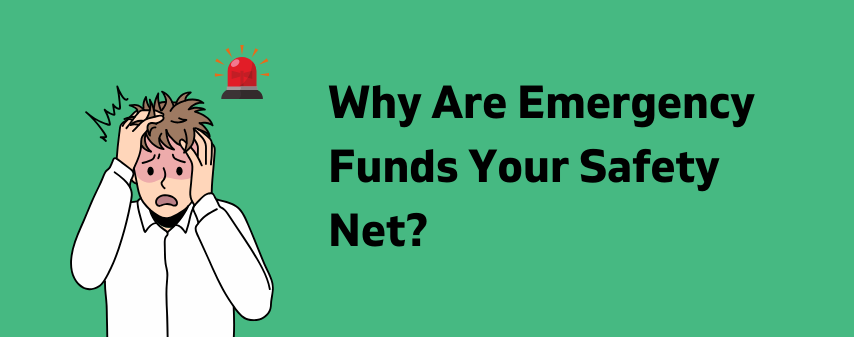Why Are Emergency Funds Your Safety Net?

Introduction
In the unpredictable world of personal finance, an emergency fund serves as a crucial safety net for unexpected expenses. These include medical emergencies, unexpected job loss, major home or car repairs, and urgent travel needs. Other examples could be sudden major household appliance breakdowns or unplanned family obligations. Having an emergency fund can provide the financial security you need to weather the storm. Let’s explore why it is essential and how it can serve as your safety net.it
How to Build an Emergency Fund
Building an emergency fund might seem daunting, but with some discipline, it’s achievable. Start by setting a goal—typically, three to six months’ worth of living expenses. This cushion helps handle unexpected situations without financial strain.
Create a budget to identify areas where you can cut back and save more. Automate your savings by setting up automatic transfers from your checking account to your savings account. Consider saving any windfalls, such as tax refunds or bonuses, to give your fund a boost. Regularly track your progress to stay motivated.
What an Ideal Emergency Fund Looks Like
An ideal emergency fund is easily accessible and kept in a liquid account, such as a savings account, ensuring you can access it quickly without penalties. Keep this fund separate from other savings to avoid spending it on non-emergencies. Aim to cover three to six months of essential living expenses for a balanced safety net.
When Should You Use It?
So, when should you use your emergency fund? This is for genuine emergencies only. These include medical emergencies, unexpected job loss, major home or car repairs, and urgent travel needs. Avoid using your emergency fund for non-essential expenses like vacations, new gadgets, or entertainment. Keeping your safety net intact for true emergencies ensures you have the financial security you need when you need it most.
How Emergency Funds Provide a Safety Net in Bad Times
During tough times, an emergency fund is a lifeline. It offers peace of mind, reducing stress and avoiding reliance on high-interest credit cards or loans. Most importantly, it protects your investments, allowing them to grow uninterrupted and keeping your financial goals on track.
As financial advisor Suze Orman says, “Emergency savings is your best friend. It protects you and gives you confidence.”
What Comes Next After Building Your Emergency Fund?
Once your safety net is established, focus on paying off high-interest debts to free up income for other goals. Start contributing to retirement accounts like EPF, PPF, or NPS, and consider mutual funds or SIPs for long-term wealth growth. Also, set savings goals for significant objectives like buying a house or funding education. Regularly review and adjust your financial strategy to maintain financial security.
Conclusion:
In conclusion, an emergency fund is a crucial part of your financial toolkit. It provides a safety net that can help you navigate life’s uncertainties without derailing your long-term financial plans. By building and maintaining it, you can face unexpected challenges with confidence and stay on track toward achieving your financial goals. Remember, the best time to start saving for emergencies is now. Your future self will thank you!
Start investing with Dhanvantree today and secure your financial future!
Note: Mutual fund investments are subject to market risks. Read all scheme-related documents carefully before investing. The past performance of the schemes is neither an indicator nor a guarantee of future performance.
Building an emergency fund might seem daunting, but with some discipline, it’s achievable. Start by setting a goal—typically, three to six months’ worth of living expenses. This cushion helps handle unexpected situations without financial strain.


Leave a Reply